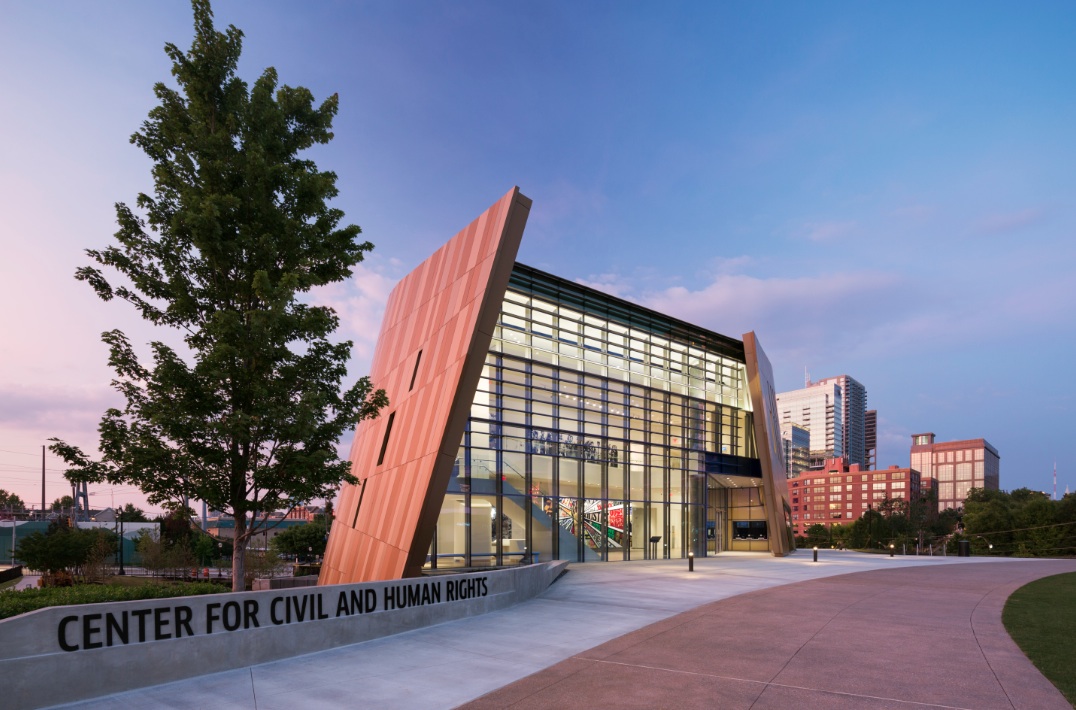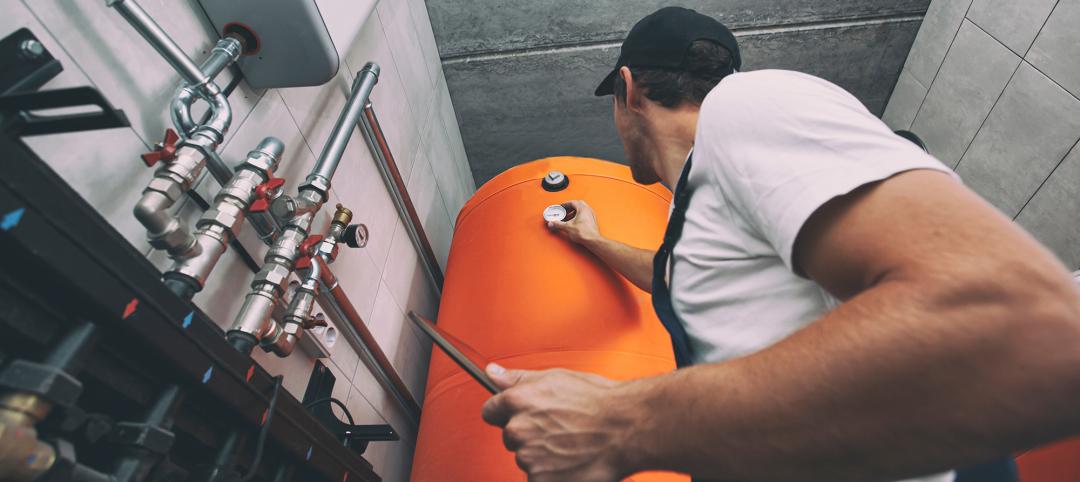Now in its fifth year, the per-capita list is based on 2010 U.S. Census data and includes commercial and institutional green building projects that were certified throughout 2014. Illinois retained its top national position for the second year in a row, with 174 LEED certifications representing 3.31 square feet of LEED-certified space per resident.
Two newcomers to the list, Georgia and Arizona, show that 2014 was a year of major growth for LEED in the South and Southwest regions of the country, while the continued strong performance of Washington, D.C., Maryland and Virginia have helped the mid-Atlantic region remain the epicenter of green building across the country. Washington, D.C., which is not included on the official list of top states due to its status as a federal territory, is notable as it continues to lead the nation with 29.44 square feet of space per resident certified in 2014. Maryland and Virginia finished third and fourth respectively, and both states increased their per capita totals to 2.70 and 2.33 square feet of LEED space per resident in 2014.
The 2014 list had the highest average (2.34) of per capita space certified per resident per state since 2010, and the second highest average to date. Six of the eight states (Ill., Colo., Md., Va., Mass., and Hawaii), which were also on the list in 2013, increased the amount of square feet of space they certified per resident in 2014. Illinois and Colorado are the only two states to make the list every year since 2010.
The full ranking is as follows:

USGBC calculates the list using per-capita figures as a measure of the human element of green building, allowing for a fair comparison of the level of green building taking place among states with significant differences in population and, accordingly, number of overall buildings.
In 2014, LEED for Building Operations and Maintenance was once again the most popular rating system within the top 10 states, representing 48 percent of the total square footage certified. LEED for Building Design and Construction was the second most popular rating system in the top 10, representing 46 percent of the square footage certified and LEED for Interior Design and Construction was the third most popular rating system, representing 6 percent of total square footage certified in these states in 2014.
A sample of notable projects that certified in these states in 2014 include:
- Illinois: The Aon Center, a 3.2 million-square-foot tower in Chicago owned by Jones Lang LaSalle, LEED Silver
- Colorado: Denver Museum of Nature & Science’s Morgridge Family Exploration Center in Denver, LEED Platinum
- Maryland: NASA Goddard Space Flight Center Building 26 in Greenbelt, LEED Gold
- Virginia: University of Mary Washington’s Technology Convergence Center in Fredericksburg, LEED Silver
- Massachusetts: Winchester Hospital Ambulatory Surgery Center in Winchester, LEED Gold
- Hawaii: City Financial Tower in Honolulu, LEED Gold
- California: Levi's Stadium in Santa Clara, LEED Gold
- Georgia: The Georgia World Congress Center in Atlanta, LEED Silver
- Minnesota: Wells Fargo Center in Minneapolis, LEED Gold
- Arizona: Arizona State University Health Services renovation in Tempe, LEED Platinum
- New York: Golisano Institute for Sustainability at the Rochester Institute of Technology in Rochester, LEED Platinum
Collectively, 1,662 commercial and institutional projects became LEED certified within the top 10 states in 2014, representing 251.7 million square feet of real estate. Worldwide, 4,502 projects were certified in 2014, representing 675.7 million square feet.
More than 26,600 projects representing 3.6 billion square feet of space have been LEED-certified to date, with another 42,000 projects representing 8.8 billion square feet in the pipeline for certification. USGBC launched LEED v4, the newest version of the rating system, in the fall of 2013. The latest version continues to raise the bar for the entire green building industry, which Forbes Magazine projects could be worth up to $960 billion globally by 2023. LEED v4 features increased technical rigor; new market sector adaptations for data centers, warehouses and distribution centers, hospitality, existing schools, existing retail and midrise residential projects; and a simplified submittal process supported by a robust and intuitive technology platform.
Related Stories
Sustainability | Feb 26, 2024
GBBN's Inflation Reduction Act Calculator goes live
GBBN has publicly released its IRA Calculator, a tool that helps you understand funding opportunities in the IRA for sustainable design.
MFPRO+ News | Feb 15, 2024
Nine states pledge to transition to heat pumps for residential HVAC and water heating
Nine states have signed a joint agreement to accelerate the transition to residential building electrification by significantly expanding heat pump sales to meet heating, cooling, and water heating demand. The Memorandum of Understanding was signed by directors of environmental agencies from California, Colorado, Maine, Maryland, Massachusetts, New Jersey, New York, Oregon, and Rhode Island.
Codes | Feb 9, 2024
Illinois releases stretch energy code for building construction
Illinois is the latest jurisdiction to release a stretch energy code that provides standards for communities to mandate more efficient building construction. St. Louis, Mo., and a few states, including California, Colorado, and Massachusetts, currently have stretch codes in place.
Sustainability | Feb 7, 2024
9 states pledge to accelerate transition to clean residential buildings
States from coast to coast have signed a joint agreement to accelerate the transition to pollution-free residential buildings by significantly expanding heat pump sales to meet heating, cooling, and water heating demand in coming years.
Sustainability | Dec 22, 2023
WSP unveils scenario-planning online game
WSP has released a scenario-planning online game to help organizations achieve sustainable development goals while expanding awareness about climate change.
Sustainability | Nov 1, 2023
Researchers create building air leakage detection system using a camera in real time
Researchers at the U.S. Department of Energy’s Oak Ridge National Laboratory have developed a system that uses a camera to detect air leakage from buildings in real time.
Hotel Facilities | Sep 15, 2023
The next phase of sustainability in luxury hotels
The luxury hotel market has seen an increase in green-minded guests looking for opportunities to support businesses that are conscientious of the environment.
Metals | Sep 11, 2023
Best practices guide for air leakage testing for metal building systems released
The Metal Building Manufacturers Association (MBMA) released a new guidebook, Metal Building Systems - Best Practices to Comply with Whole-Building Air Leakage Testing Requirements.
Regulations | Aug 23, 2023
Gas industry drops legal challenge to heat pump requirement in Washington building code
Gas and construction industry groups recently moved to dismiss a lawsuit they had filed to block new Washington state building codes that require heat pumps in new residential and commercial construction. The lawsuit contended that the codes harm the industry groups’ business, interfere with consumer energy choice, and don’t comply with federal law.
Green | Aug 7, 2023
Rooftop photovoltaic panels credited with propelling solar energy output to record high
Solar provided a record-high 7.3% of U.S. electrical generation in May, “driven in large part by growth in ‘estimated’ small-scale (e.g., rooftop) solar PV whose output increased by 25.6% and accounted for nearly a third (31.9%) of total solar production,” according to a report by the U.S. Energy Information Administration.

















